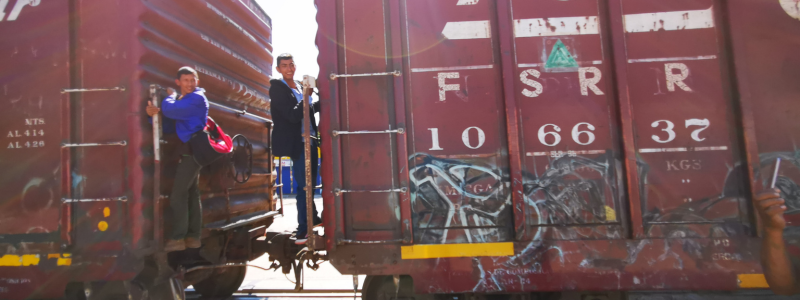Living in a society that is focused more on “having” than “being” produces many consequences in the lives of children and adolescents of the most vulnerable populations.
There are so many problems linked to child labor and all of them are embedded in this capitalist system that obtains from exploitation, corruption and violence the profits that will destroy us in the future, and loots us of all the innocence and hope that is in our children and adolescents in the present.
Why should we be responsibile for supporting families and taking an interest in their very existence? Why promote environments where safety expectations have been eliminated and increase illness, uncertainty, anxiety and stress in minors? A minor should enjoy full self-development: physical, emotional, and cognitive. The reactions that exist between the separation and the loss is a discouraging and desolate projection for the emotional development of every individual, and in the case of minors it is even more aggravating. In unsafe environments, the child will present a deficit in social skills, ignorance of their rights, and the distortion of the perception of the world.
The psychological consequences for minors who endure violent environments is an accurate shot at hope for the future. For Christians, as Pope Francis said, hope is: “the virtue of a heart that does not close in the dark, does not it stops in the past, it does not live in the present, but knows how to see tomorrow”. And with regard to this consequence, it is linked to strengthening the irrational belief that only through suffering is it lawful for us to enjoy the quality of life. Suffering as such is not a constitutive part of Christian spirituality, instead it is, generosity, hope and solidarity that bring the transformation of peoples.
How many unaccompanied minors travel through our territories in search of an end point, but not an end point generated by the verdict of poverty. Social justice for all reincorporates the utopia of a future with values, norms and traditions that strengthen ties and social relationships based on care and well-being.

Caring for the hope of children and adolescents who are migrants in our lands means that spaces where rest, play and collaboration are vital and encouraged. Recreational spaces should integrate the following opportunities:
- To strengthen self-esteem/self-concept
- To attenuate the feeling of guilt that boys and girls feel in the face of abuse or mistreatment: make them feel guilty
- To practices relaxation techniques to reduce stress factors (transversal)
- To teaching the rights of the child (transversal)
- To strengthen social skills, including knowing how to say no
- To strengthen emotional skills, that is, the expression of feelings of desire and non-desire.
We invite you to listen to Rosa’s story (in Spanish):
That is why it is important to reconsider how social justice can begin with the game for everyone, and the game improves social development and experimenting and exploring the world in adequate conditions, with integration and confidence, always under the observation and care of a adult, with activities that favor the expression of positive emotions, and strengthens the child’s feeling of security when interacting with new spaces and cultures.
Christian hope is not passive, it has a fully human and theological-mystical significance, in the sense that hope needs a concrete experience, and at the same time a spirit that gives meaning to human fullness. That is why Christian hope comes to us from the Risen One, who gives fullness to humanity making justice possible for every migrant boy, girl and adolescent.
👉 Pay attention. Child labor happens near you.

